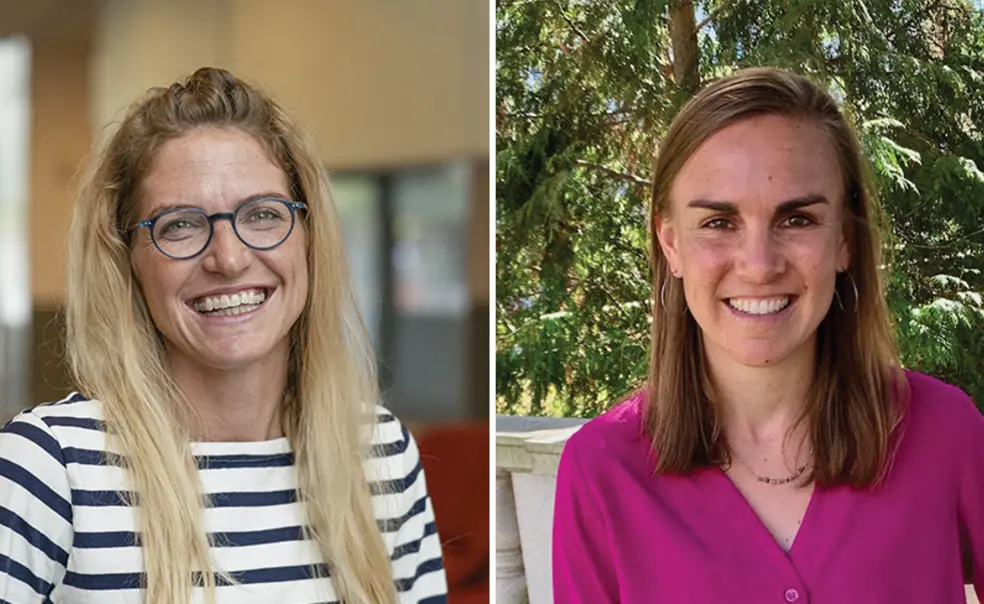Cara Brook *17 and Professor Fenna Krienen Named Pew Scholars
Princeton neuroscience professor Fenna Krienen and ecology and evolutionary biology alumna Cara Brook *17 have been named Pew Scholars in the Biomedical Sciences. According to the announcement by the Pew Charitable Trusts, scholars in the biomedical sciences receive four years of funding “to uncover fundamental insights about human health and disease.” Krienen and Brook will join 20 other early-career researchers named to this year's cohort.
“For 40 years, Pew has supported young, talented researchers as they take creative approaches to solving big scientific questions,” Pew administrator Donna Frisby-Greenwood said in the announcement. “This new class continues that legacy, and we look forward to seeing where their discoveries lead.”
The Pew scholars were chosen from among 209 applicants, each nominated by their academic institution or a colleague. Both Krienen and Brook said the March email from Pew congratulating them was a welcome surprise in their inboxes.
“I’ve had a couple of federal supplements that were geared toward promoting diversity in STEM and supporting specific students that have been terminated in the past few months, so it was nice to hear some good news in the face of some of the less optimistic news that has been coming through lately,” says Brook, an assistant professor of integrative biology at the University of California, Berkeley.
Her research focuses on infectious diseases that spread from animals to humans, particularlythose from wild bats. Building on research she began at Princeton, Brook runs a field site in Madagascar where her team studies fruit bat viruses in hopes of developing a vaccine to eradicate infections and prevent future pandemics. The Pew award will be vital to help test these vaccines, Brook says.
Krienen, an assistant professor at the Princeton Neuroscience Institute, researches how the brain’s resident immune cells, called microglia, facilitate neural development in primates. Her lab is particularly interested in understanding the connection between the brain and the body’s immune system in hopes of offering insights into neurological disorders such as schizophrenia.
“We’re interested in how these interactions form, especially during development,” Krienen tells PAW by email. “With the Pew, we now have the support — both financially and with the network of alumni — to explore these exciting new horizons.”












No responses yet